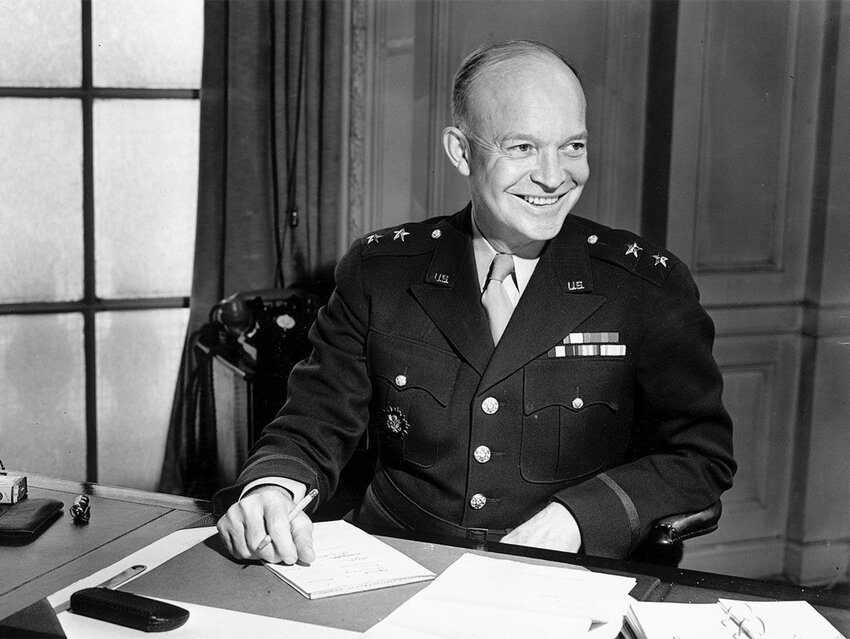Ever since George Washington took office in 1789, what U.S. Presidents have said has been analyzed just as closely as what they do. Over the years, many Presidents have found the English language lacking the word they needed to convey a specific sentiment — and thus new words were borrowed or created. Once written or reported, the President’s use of an unfamiliar or obscure word often served to increase the word’s usage among the public — but not all of the words coined or popularized by U.S. Presidents have been related to the government or politics. Here are a few of the words and terms that U.S. Presidents have contributed to the American lexicon.
Mulligan
This golf term, meaning an extra stroke allowed after a bad shot, was coined by hotelier and amateur golfer David B. Mulligan in the 1930s. The do-over wasn’t well known off the golf course until avid golfer (and future President) Dwight D. Eisenhower requested a “mulligan” in a 1947 golf game that was covered by news reporters. Eisenhower’s popularity as a President helped increase the nation’s interest in the sport and made “mulligan” a familiar word even among non-golfers.
Pedicure
Thomas Jefferson is credited with coining over 100 words — more than any other President. Among the words the third President introduced are “indecipherable,” “belittle,” and “pedicure,” the latter of which means to care for the feet and toenails. “Pedicure” was one of several words that Jefferson borrowed from the French after spending many years in Paris.
Founding Fathers
First as a senator in 1918 and then during his presidential campaign in 1920, Warren G. Harding used “Founding Fathers” to reference the architects of the Declaration of Independence and U.S. Constitution. The 29th President’s alliterative term stuck, replacing the previously used descriptor, “framers.”
Quixotic
The second President, John Adams, helped popularize the word “quixotic,” a reference to Miguel de Cervantes’ idealistic hero in Don Quixote. Adams used the word to describe Venezuelan General Francisco de Miranda as “a vagrant, a vagabond, a Quixotic adventurer.”
Sugarcoated
Honest Abe gets credit for popularizing “sugarcoat,” a figurative term meaning to make something distasteful more palatable. In a July 4, 1861, letter, President Abraham Lincoln took aim at secessionists, writing, “With rebellion thus sugar-coated, they have been drugging the public mind of their section for more than thirty years.”
OK
The popularity and usage of “OK,” meaning “all right or all correct,” is closely linked to the eighth U.S. President, Martin Van Buren. Originally, “o.k.” was a shortening of “oll korrect,” a deliberately exaggerated misspelling of “all correct” that was used as a joke by newspaper editors. As a native of Kinderhook, New York, Van Buren acquired the nickname Old Kinderhook, abbreviated “O.K.,” with his supporters forming “O.K. Clubs” around the country. When it was incorporated into the President’s 1840 election campaign, “O.K.” took on the additional significance of “Old Kinderhook is O.K.”
Administration
While George Washington didn’t coin the word “administration,” he is credited with being the first to use it to define a U.S. President’s time in office. He first used the word in his 1796 farewell address, writing, “In reviewing the incidents of my administration, I am unconscious of intentional error.”
Featured image credit: Fox Photos via Getty Images

